
 Mickie Kennedy founded eReleases 24 years ago to help small businesses, authors, and startups increase their visibility and credibility through tier-1 press release distribution.
Mickie Kennedy founded eReleases 24 years ago to help small businesses, authors, and startups increase their visibility and credibility through tier-1 press release distribution.
Mickie created eReleases to give small businesses access to the media and to a national newswire – all with a personal touch.
eReleases has grown since then and even works with big names now, but the spirit of Mickie’s original intent has not changed.
eReleases delivers personal service and exceptional value to every customer, with every press release, at every price point.
Mickie lives in Baltimore County with his family and two feuding cats.
Connect with Mickie on LinkedIn and follow eReleases on Facebook and Twitter.
What You’ll Learn In This Episode
- What a press release is and how they work
- Tips for writing a winning press release
- Why so many press releases fail
- How a company can use media coverage to improve conversions and get more sales
This transcript is machine transcribed by Sonix.
TRANSCRIPT
Intro: Broadcasting live from the Business RadioX Studios in Atlanta, Georgia. It’s time for High Velocity Radio.
Lee Kantor: Lee Kantor here another episode of High Velocity Radio. And this is going to be a good one. Today on the show we have Mickie Kennedy with rereleases releases. Welcome, Mickey.
Mickie Kennedy: Hi, thanks for having me.
Lee Kantor: I am so excited to learn more about what you’re up to. I think what you do is so important and a lot of entrepreneurs really have to get this part of their business right if they want to grow. So tell us about your releases, how you serving folks.
Mickie Kennedy: Right? So E Releases is a press release distribution platform. We work with PR Newswire, which is the oldest and largest newswire of press releases. But if anyone has worked with them before or knows of their pricing, they’re closer to $1,300 for like a 600 word press release. And through E releases, it’s about two thirds less for a national distribution. And it’s because we serve small businesses, they don’t do outreach to small businesses, and we sort of act as a co-op representing buyers. And we do between, you know, 10 to 14,000 press releases a year.
Lee Kantor: Now, do you mind just kind of educating the listener about why they should consider having press releases as part of their marketing mix?
Mickie Kennedy: Sure. So the biggest value with PR is the ability of leverage. If you have a message that is extremely newsworthy or craft a message that is newsworthy, you could potentially get, you know, 4 or 5 articles written about you is what we see as a good result. We had seen I have a case study on the website E releases.com where during the pandemic we did a press release for the dining bond initiative, which was set up for a very short time just to help restaurants that were closed down during the pandemic. And we stopped counting at 150 articles. All the big players, Wall Street Journal, Washington Post picked it up, as well as like food trade publications and many, many small newspapers across the country. And it also got international pick up as well. And it generated in excess of $10 Million in revenue. And they had paid for the release because we did it as a courtesy to help out the initiative. It would have been like $400. So, you know, I challenge any marketer to, you know, put $400 in and get $10 million plus out. You just can’t do it. But with PR, there is that ability with leverage. Now that’s an extreme example, but you know, it’s a valid example and shows that by basically putting small little efforts into a PR campaign over time you can get some real considerable benefit, including new customers as well as when you get these articles written about you, you can take those and put those in front of your leads as well as your existing customers, and it helps your leads who may not have converted to move over to your side of the fence and potentially do business with you. And for existing customers, we don’t take into account that every year there are some who are going to be shopping to make sure that they’re with the right company. And if they see, you know, this article about you, which serves as sort of like an implied endorsement, it goes a long ways for them to say, hey, I’m pretty comfortable with who I have. I don’t need to shop this year.
Lee Kantor: Now, for a lot of business people, maybe they take their work for granted and they don’t kind of look at what they’re doing as newsworthy. Is this something that you really have to be creative to come up with something that’s, quote unquote, newsworthy? Or is it something that any business, you know, with kind of an understanding of what the media is looking for can figure out on a regular rhythm? Okay, this is newsworthy. And we do something newsworthy every, you know, 4 to 6 months or every two months or I don’t know what the appropriate rhythm for press releases are. You can maybe educated about that, but I would think a lot of folks don’t consider what their work is doing is newsworthy.
Mickie Kennedy: Right. So I think that anytime you have a major milestone in your company, that potentially could be a press release. And you know, for small businesses, I recommend you try to do a press release once a quarter. You do have to sort of be strategic. I think that, for example, I’ve helped clients who’ve just tried PR and it never worked for them. And what I suggested was that they do a survey or study within their industry, and that sounds really daunting, but it really isn’t. You know, it’s about 15 minutes and survey monkey creating, you know, four pages with four questions on each page, a total of 16 questions you want to make sure you’re asking, you know, timely questions, things that are relevant today. And if you were to ask in six months, the answers would be probably different. They could be trends that are going on in your industry. Like, you know, is your you know, are you spending less or more in your marketing budget over the next couple of quarters? Are you having difficulty with hiring or are you planning layoffs or are you seeing resistance to people not wanting to come back into the office and work? All of these things could be really interesting questions to ask. Anything that you would perhaps talk to a colleague at a trade show or conference would. Be potentially a really interesting question you could ask. And also looking at what’s going on and if you put a little bit of effort there and ask the right questions, you’re going to come up with a survey that gives you some really interesting results. You’re going to take maybe 2 to 4 of those questions and talk about them in the press release highlighting what the big Aha moments were, what were the surprises? And you’re going to provide a little bit of analysis with a quote by you as to why you felt the numbers skewed a particular way.
Mickie Kennedy: And then by doing that, you position yourself as an expert. And generally when these go out, we see between four and as many as 14 articles that get written from a single press release. And, you know, that’s the way in which you can sort of create the news. And it really is one of the things that most anyone can do, you know, do get a little pushback, saying, you know, we don’t have enough people in our industry to send the survey to. But if you think about it, there’s lots of independent and small trade associations in every industry. And unlike the large trade associations, they don’t get a lot of media love. So if you approach them and say, Hey, could you send this to your members, I’ll mention you in a press release I’ll be issuing over the wire. Many of them will do it because they see it as a win win, you know, and the goal is to get them to send it to their members. Often they’ll do that by email or through social media. Sometimes you can get them to do both, and sometimes they push back themselves and ask, could we co-brand the survey so that the trade association and you are both aligned as the authors of the survey. I don’t see a downside to that and it’s really a great way to get some recognition within your industry, expose yourself to other businesses that could potentially be allies or potential synergies as well. So there’s lots of different ways in which you can benefit from that, as well as getting the actual articles written about you.
Lee Kantor: Now, is that something that works best for a company that has a national audience, or is it something that could work for the local hardware store?
Mickie Kennedy: It could work for anyone. I did one for a local auto repair shop in Pennsylvania. Their their goal was to get links from auto industry trade publications. And I felt like a survey would be a really great way to do that. Despite them being a local company. You know, they got national trade pickup. They also got local newspaper picked it up as well. But we weren’t certain that that would happen. And, you know, this went to the question that was basically the whole press release was what’s the strangest thing customer left in their car while being repaired? And we sent that through a trade association to other independent auto repair centers across the US. I think a couple hundred people filled out the survey. I think we highlighted about in the press release, I think we highlighted 20 of the strangest things people left in their cars and we had a page where we listed, I think about 80 of them in total, and it went really well. The auto trade publications picked it up. I mean, it’s kind of a human interest element, you know, What was the strangest thing? People left in their car while being repaired and, you know, people really responded to that. You know, there was a boa constrictor. There was grandma left in an urn that had to be retrieved after hours for memorial. Just lots of little quirky things. There was no statistical relevance to the survey because everybody’s response, which was written into a field, was unique. But it really did do extremely well and shows that a local company can also get a lot of national mileage out of it, as well as some local media attention as well.
Lee Kantor: Now, is there a line that can be drawn to something like that that can that that person who put that out can trace to I got a new client.
Mickie Kennedy: Right. So it’s very difficult to measure local media. It was picked up in their local newspaper. A lot of their existing customers told them that they saw the story. You know, they said they’ve been busy. But, you know, other than that, it’s really hard to say. Their biggest factor was they were looking to they had a new domain name. Their old domain name was attached to their yellow page ad somehow, and that went dark. And so they lost their ranking locally and they had been trying to rank and they just weren’t ranking with the new domain name. And so they were told by SEO person that getting industry links of authority would go a long way. And it did. Within three months of the press release going out, they started ranking number one and number two in their area for auto repair. And so that’s definitely going to give them a huge advantage going forward.
Lee Kantor: Now, when you’re working with folks that haven’t done this before, what is kind of how do you manage their expectations? Like what is a reasonable expectation or maybe share like you’ve shared what a best case scenario is, millions of dollars of business coverage all over the planet? Like that’s. You know that’s the lottery ticket win that everybody dreams of. But what is maybe more realistic and what’s a worst case scenario?
Mickie Kennedy: Right. So if you’re doing more strategic types of press releases, like the survey, I’ve never seen the survey get less than four articles. That being said, the majority of press releases generate no earned media or articles written about them, and that’s because of the types of releases that most people do. We see a lot of hiring press releases and we’re not talking about a new president or CEO or some industry veteran of 40 some years that’s been plucked and moved to the board. We’re talking about a new associate HR person. And I do tell people that, you know, I wouldn’t spend money to send a press release like that over the wire, send it to your local newspaper and maybe one trade publication where they have a little on the move section because they they rarely generate any results. Other types of releases that I see are product launch press releases where it’s just here’s our product. Here’s a list of features and here’s the buy button. And that is not a compelling story for a journalist, journalist or story builders. And so the things I push back on those releases when they ask for advice is, Hey, I’m sure you had people use this beta tested it. What were their results? Get a quote by one of them and all of a sudden you incorporate.
Mickie Kennedy: Here’s the problem that this company faced. They used the product. This is what it solved. These were their results. Here’s an amazing quote by them. And now you have the product features listed and you know, a page where there’s more technical specs for the for the product. And that gives a lot more elements of the story arc to journalists are like liking to build into an article. And I think that a lot of people come to press releases thinking of what’s in it for me. We want to sell more products, so we’re going to write an approach, the press release from that standpoint. And what they have to do is write the press release from the standpoint of we recognize journalists or gatekeepers. They’re deciding what to share with their audience. What can I do to make it irresistible or more compelling to these journalists and make them want to share it with their audience? And I think that that can sort of help you build out a press release in a way that’s going to stand a much higher chance of media pickup. I do tell people that if you’re open to PR, you know, give it a proper PR campaign of maybe 6 to 8 press releases. You know, maybe it’s once every other month, maybe it’s once a quarter. But, you know, learn from the ones that don’t work, try to incorporate more strategic strategies.
Mickie Kennedy: You know, one of those things might be if there’s an industry trend, do not join the trend. They call that newsjacking. It used to work ten, 15 years ago. It doesn’t anymore because everyone does it. They join the conversation. They don’t add anything of substance to it. They just sort of echo what everyone else is saying. But if you’re the contrarian viewpoint and you’re going against what everybody else in the industry is saying, you have the likelihood of getting picked up in every article that gets published about that subject because you’re the only person who’s raised his hand or her hand and said, Hey, not so fast. Here’s a contrarian or, you know, viewpoint on the subject. And journalists do like to be fair and balanced, to have both sides, but many times they don’t because there’s no one willing to do that. And I do I do caution that you want to make sure you take a position that doesn’t alienate you with your customer base. But there are lots of issues out there where there are, you know, potentially some negative side effects. I mean, it seems like electric cars being pushed. You could be the person who says, hey, maybe we shouldn’t be embracing electric cars so fast because of, you know, the mining of the minerals to make the batteries.
Mickie Kennedy: It’s not environmentally sound or the labor involved is problematic. And plus, we don’t know what we’re going to do with these cars at the end of their life as far as the batteries and other elements. And also, you know, there’s there’s a safety thing with, you know, these cars catching on fire and accidents. So maybe we should sit back and wait a little while and make sure we’re making the best decision going forward. You know, that approach seems really rational, but it is contrarian. And I think that that’s one way to strategically stand out. There are lots of other little elements to to know. But, you know, journalists love data. So anytime you can incorporate statistics and data, it doesn’t have to be your data. You don’t always have to do a survey or study. But if you take data that’s out there publicly available and put it together, it can really, you know, boost your messaging. So even in the product launch, if you talk about the problem that people in your industry are facing and you have numbers attached. To it in certain percentages. That’s going to give you more of a hook for the journalist to dig into and be able to incorporate into an article.
Lee Kantor: Now, is this something that a, you know, a business person who may be an expert in their niche should tackle on their own, or should they get some expert advice when it comes to writing the press release, you know, choosing the right places to distribute it? And if so, is that something that EA releases helps them with, or are they kind of on their own? And that’s just the place for distribution?
Mickie Kennedy: Right. So EA Releases is all about helping people. We work with a lot of people who’ve never done before, so we walk them through the path. I do say that press releases are pretty simplistic. If you look on our website, we have a lot of press release samples and templates. You know, I do say go ahead and try to draft one yourself, maybe even use AI to help you a little bit If you feel that writing is not your forte. I wouldn’t let the the AI give you the idea for the press release, but it can certainly help put together the copy, especially if you go paragraph by paragraph knowing what you want and each paragraph can can really sort of make tighten up your language. But that being said, you can always send us your release. We have chat, email and phone availability, all of the people that answer and correspond with customers or editors. And we’ll look at your press release and give you our advice usually in two business days at no cost, whether you’re working with us or not. And I do think that it is one of the things that a lot of people feel maybe just not comfortable with it. So we do offer writing services as well. But I do think that most people could could put together a pretty good press release. It’s just, you know, making sure that you’re using the building blocks of being strategic. And to that point, I do have a free masterclass on strategic types of press releases. It’s less than an hour video. It’s great for people who are new to PR Can really give you a good audit of the type of press releases you should be doing, and it’s available at EA releases.com/plan plan and it’s completely free, less than an hour long video masterclass and it’s a great place to get started.
Lee Kantor: And what’s the most rewarding part of your job? Is it when those kind of home run exposure opportunities happen for your clients? Like, is that what gets you the most excited every day?
Mickie Kennedy: Kind of. It’s also the quirky types of customers that we deal with. I mean, we’ve we’ve dealt with some really interesting companies over the years, one that makes rubber duckies, like with celebrities and people from history and things like that. And they got put on The Tonight Show and think Good Morning America. And, you know, it’s always fun because there’s so many people doing new novel things, things that you would never think you could put a business around. And it is really exciting. The people that appear on Shark Tank, about a third of them do press releases through us. The producers recommend that they do a press release before their episode airs and mention us by name. So it’s always fun to see those people that have used us who are out there, you know, pitching on Shark Tank. They generally do pretty well. You know, I think it helps considerably that they’re on a national TV show. But I also think that startups in general do pretty well with PR because they really know what their story is. You know, a lot of times they have a unique selling proposition and a story that goes along with how the company was founded.
Mickie Kennedy: It may be inspirational. Could you share obstacles or vulnerabilities? But I think that a lot of people love the personal story arc, and it’s a place in which you can really share your story as a small business. And the media sort of really likes that. And, you know, one of the things I do caution people is most people that approach PR feel like it’s just they’re too small to matter, that they’re just a small business. But what you have to realize is journalists really like being seen as curators and they like to put the spotlight on companies and businesses that their audience don’t know. And, you know, everybody knows Microsoft and Google. And so they they really don’t love doing those stories. They love doing the stories about, hey, I’ve discovered this strange little quirky business that’s doing something a little bit different and unique. And so from a lot of standpoints, being small is an advantage and especially an advantage when it comes to PR.
Lee Kantor: Well, if somebody wants to learn more one more time, the website.
Mickie Kennedy: It’s E releases.com and the masterclass is at E releases.com/plan plan.
Lee Kantor: Well, Mickey, thank you so much for sharing your story today. You’re doing such important work and we appreciate you.
Mickie Kennedy: Oh, you’re very welcome.
Lee Kantor: All right. This is Lee Kantor. We’ll see you all next time on High Velocity Radio.

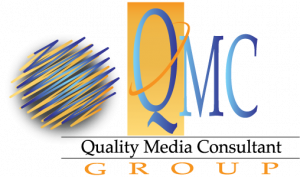
 Dr. Lori A. Manns is an award-winning, trailblazing entrepreneur and has been the owner of a successful business consulting firm for the past 14 years.
Dr. Lori A. Manns is an award-winning, trailblazing entrepreneur and has been the owner of a successful business consulting firm for the past 14 years.

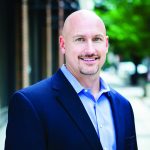 As co-founder and president, Ken Holsclaw holds the reigns of the
As co-founder and president, Ken Holsclaw holds the reigns of the 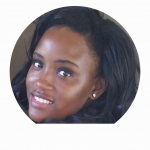 Niketa Misco, CEO and Broker of Atlanta Turnkey Locators.
Niketa Misco, CEO and Broker of Atlanta Turnkey Locators. Yanie Eyewear
Yanie Eyewear Aleisha DuChateau is a talented ceramic artist based in Atlanta, Georgia, who has been creating ceramic homewares under the brand name Utility Objects since 2018. Her distinctive style combines organic textures and glazes with a contemporary, handmade aesthetic.
Aleisha DuChateau is a talented ceramic artist based in Atlanta, Georgia, who has been creating ceramic homewares under the brand name Utility Objects since 2018. Her distinctive style combines organic textures and glazes with a contemporary, handmade aesthetic.
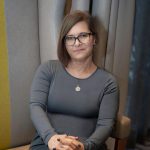 Moira Vetter is Founder & CEO of
Moira Vetter is Founder & CEO of  Justin Bartley, Founder of
Justin Bartley, Founder of 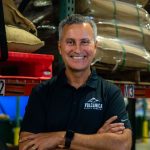 Maurice Contreras started
Maurice Contreras started 













